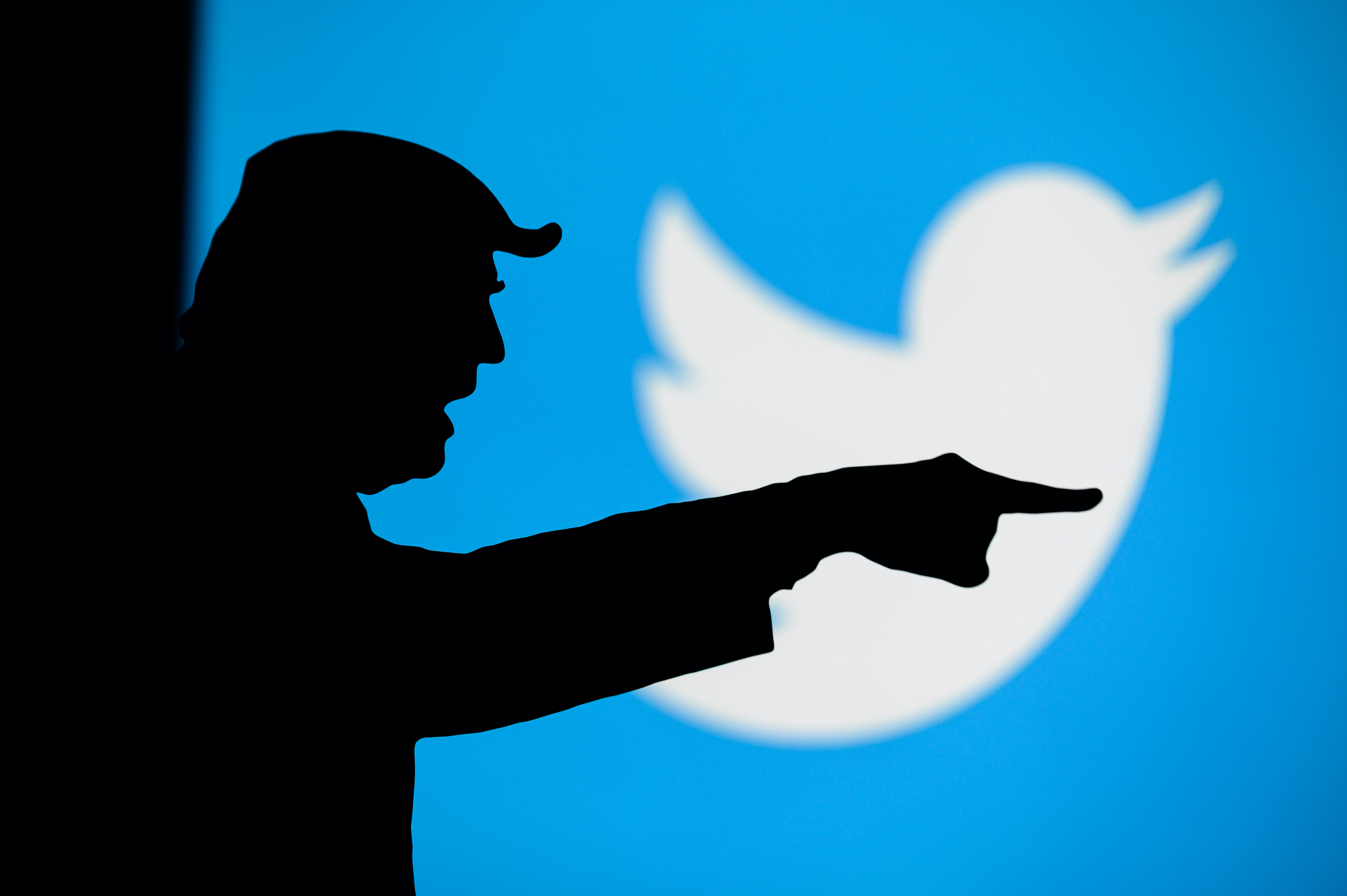Many people thrive in these spaces. I was delighted when Twitter banned the president of the United States. There’s a complication here, of course. Twitter and Facebook are private entities. They're not the government. Free speech controls don't apply to them. But the oxygen has gone away from Trump in the absence of these bully pulpits. And that's nothing to do with free speech.
The benefits and dangers of free speech
Professor of Human Rights Law
- Our affection for free speech derives from the idea that we are coolly rational beings, immune from societal pressures. In the modern world, this idea seems increasingly untenable.
- The old metaphor of the “marketplace of ideas” is deeply flawed since it assumes that everyone attending the “market” speaks in good faith. In reality, many people lie to advance their agenda.
- We should continue to regulate racist and fascist speech. Failure to do so puts the survival of our democratic system at risk.
A flawed concept
We have grown a deep commitment to free speech out of an idea that would seem absurd if we were to interrogate it now. This idea is as follows. We are autonomous, rational beings. We're independent. We are concerned about getting the right answers to particular intellectual challenges, and we see our society as resulting from a joust between independent actors exchanging rational arguments. To put it in Darwinian terms, the winner of this joust will be the most sensible and rational idea.
That’s our concept of free speech. It's based on something most people now see as false, namely that we stand outside the world, immune from its pressures. That seems to me to be incomprehensible. We are composed of passions, societal pressures, family allegiances and feelings. We're not just brains wandering around the place like computers, making dispassionate judgments. Secondly, we understand now that there isn't a truth above us that you can simply grab onto. Some religious people of traditional minds still think that’s the case, but most people disagree. Therefore, we have a truth that manages to establish itself in this chaos of argument and discussion. But it's a chaos that is not driven only by reason. It's a chaos driven by feelings, anger and desires to punish. We are much more emotional and complicated than was assumed. So free speech, which is fantastic for many reasons, is also dangerous.

Photo by Rawpixel.com.
The fetishisation of free speech
Free speech is something that has value throughout the world. Any successful society where people can speak on behalf of others, as a way to generate laws or speak truth to a leader, must respect free speech. Many societies worldwide have respected this open intercourse of ideas, and it’s not unique to the West. We should be careful before we chalk it up to one of the West's exclusive advantages.
That said, individuality is very much something that we identify with Western insights from the 17th century onwards and perhaps even as far back as the Reformation. The idea that we are rational beings who move in tandem with others through the exercise of free speech to achieve outcomes is quite Western in its conception. And then we have the most powerful country in the West, the United States, which for legal reasons has (to use a controversial term) fetishised free speech. This dates back to its 18th century constitution, which states that there shall be no infringement of free speech. And because America is the world’s dominant power, this right has tended to swamp many other important rights.
A marketplace of bad ideas?
Let’s unpack this old conception of the “marketplace of ideas”. It’s based on the idealistic assumption that the various people in this “market” are producing reasoned arguments and jousting with each other intellectually.
That doesn’t work, does it? Let’s say we put somebody in there who says it’s all the foreigners’ fault. Someone asks them if they have any evidence for this accusation. Evidence? How dare you ask for evidence! Then someone says there are 60 million Turks about to enter this country. Many people applaud this statement. Someone else says that it’s men who are the victims of injustice, not women. People applaud that too.
This is a defunct marketplace of ideas. It's not driven by reason. It's driven by feelings and emotions. And these feelings and emotions feed a sense of anger on the part of some of the listeners, which puts them utterly out of the range of rational discourse. That's the big mistake that the marketplace of ideas analogy makes. It's a mistake driven by the kinds of people who come up with it. The kinds of people who come up with these ideas are very reasonable and would enjoy a marketplace of ideas attended by people like them. But that's not the real world. The real world is messier. We are all vulnerable to having our feelings exploited by demagogues and populists.
Networks of hate
One of the first things I did when I came to Britain from Ireland as a student was to argue that there should be no free speech for fascists. I also believed, and still believe, that there should be no free speech for racists.
Free speech isn’t a thing in itself. It’s a thing because of what it gives us, which is a sense of dignity, participation and living in a civilised space. It’s not a blank cheque for racists and fascists. I've always supported laws that have controlled racists and fascists.
But we can’t ignore the fact that social media has created enormous spaces of negative solidarity for fascists, racists, white supremacists, maligned men and incels who bring their anger into a space that previously didn't exist or was at least very hard to find. They bring this into their networks at home late at night, making them vulnerable to demagoguery.

Photo by kovop58.
Regulating speech
Even the most devout commitment to free speech recognises the need for some regulation. You can’t go into a cinema and shout “Fire! Fire!” when there's no fire, causing a bunch of people to get trampled in the stampede for the exits.
We've never had uncontrolled free speech. That's anarchy. I'm not allowed to incite the murder of a named person in a quiet discussion in a pub with a contract killer and then claim that it was free speech. So we're only talking about the level of regulation.
In terms of law, the European system will do as an example. You're allowed to constrain free speech where it is “necessary in a democratic society”. I take that to mean that billionaires should not be allowed to run the political process. You have to control the amount of money they can spend, even though the U.S. Supreme Court has said that it’s free speech. Certainly, the manufacturing of lies about people for political ends, or so-called “fake news”, should be regulated.

Leader of far-right Golden Dawn party Nikolaos Mihaloliakos delivers a speech during the main pre-election rally. Photo by Alexandros Michailidis.
We should continue to regulate racist and fascist speech. Not to be pompous about it, but the democratic system is at stake. If we don't wise up and act, the state will be so hollowed out that it will not have the capacity to act. We’re in a race against time to preserve a space marked “freedom of discourse”, which is actually about reason and what we think free speech should be about.
Spheres of reasoned discourse
Those of us who work in higher education have to assume that universities exist in a rare sphere of reasoned discourse. They can’t be compared to the marketplace or (say) Speaker’s Corner in Hyde Park. We have to assume that we’re dealing in reason because if we aren’t, what’s the point of universities?
Universities should have no-holds-barred discussions. Teachers should be completely free to develop their points of view as they wish. But – and here’s the rub – without needless provocation. The purpose of communication should be to communicate ideas. Provocation should not be its primary goal. I may want to make some very important points about freedom of religion. I don't need to make it in a way that deeply upsets some of my students. But I do need to make those points.
In other words, we need to have some kind of ethical self-control in how we exert our untrammeled rights to freedom of speech in universities. That's why I'm very much opposed to legal controls on academic discourse. There was a government minister who wanted to see everything we said about Brexit. He was afraid that we would be anti-Brexit. The government in the United Kingdom is trying to control what we say in universities and elsewhere on the basis that it might be “extremist”. That’s ludicrous. But it’s not ludicrous to ask of us that we respect our listeners.
Fighting for the truth
The risk with saying there is no truth is that we end up saying there are no lies. Sadly, lies are coming to dominate our discourse – lies about people, lies about society, lies about party leaders, lies about vaccines. And free speech is therefore being endangered by a proliferation of nonsensical speech: of speech that defies reason. We need to defend it. We need to fight for truth as we understand it and empower our legislators to resist lies masquerading as just more stuff that is of equal importance to everything else.
Discover more about
the benefits and dangers of free speech
Gearty, C. (2009). Chapter 3. Truth, Free Speech and Knowledge: The Human Rights Contribution. In S. H. Saw & D. Quah (Eds.), The Politics of Knowledge (pp. 34-56). ISEAS Publishing.
Gearty, C. (2006). Can Human Rights Survive? (The Hamlyn Lectures). Cambridge University Press.
Gearty, C. (2019). States of denial: what the search for a UK Bill of Rights tells us about human rights protection today. European Human Rights Law Review.
Gearty, C. (2024). Homeland Insecurity: The Rise and Rise of Global Anti-Terrorism Law. Polity.